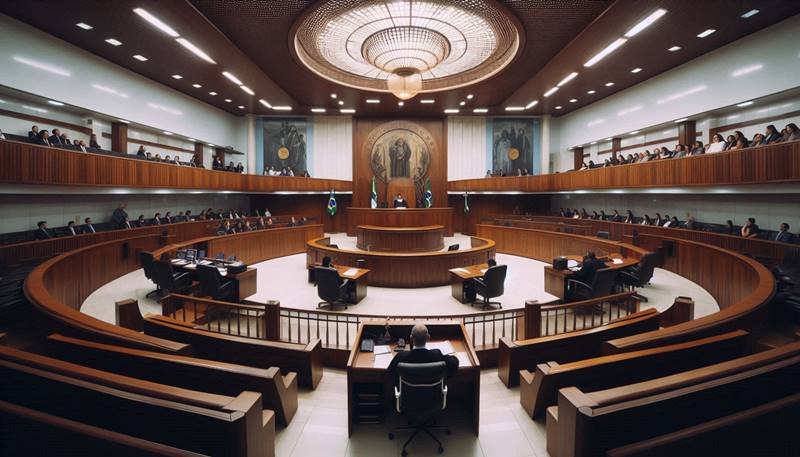Choosing Brazilian Law to Execute International Debts

In an increasingly globalized world, international trade and cross-border transactions have become common, leading to a rise in international debt obligations. One crucial aspect of managing these obligations is determining the applicable law for executing debt recovery. Brazilian law offers a robust framework for the execution of international debts, providing several advantages to creditors.
Brazilian Legal Framework
Brazil’s legal system, rooted in civil law traditions, offers a comprehensive and detailed approach to debt enforcement. The primary sources of legislation governing debt recovery include the Civil Code (Law No. 10,406/2002), the Code of Civil Procedure (Law No. 13,105/2015), and specific laws related to negotiable instruments and bankruptcy.
Lei de Introdução às Normas do Direito Brasileiro (LINDB)
An essential component of the Brazilian legal framework is the Lei de Introdução às Normas do Direito Brasileiro (LINDB), which provides general rules for the application of Brazilian law. One crucial provision is Art. 9o § 2o, which states:
“§ 2o A obrigação resultante do contrato reputa-se constituída no lugar em que residir o proponente.”
This provision means that the obligation arising from a contract is considered to be established in the place where the proposer resides. This principle is vital for determining the jurisdiction and applicable law in international contracts, ensuring that the legal obligations are clear and enforceable.
Advantages of Choosing Brazilian Law
1. Comprehensive Legal Structure
Brazil’s legal framework provides a well-defined process for debt enforcement, ensuring that creditors have clear guidelines and legal recourse. The Code of Civil Procedure outlines the steps for initiating legal action, obtaining judgments, and enforcing debt recovery.
2. Efficiency in Debt Collection
Brazilian courts have specialized civil chambers that handle debt recovery cases, which can result in more efficient and timely resolutions. Additionally, the availability of various enforcement mechanisms, such as garnishment of wages, seizure of assets, and judicial auctions, enhances the effectiveness of debt collection.
3. Recognition of Foreign Judgments
Brazil has a robust system for recognizing and enforcing foreign judgments. The Superior Court of Justice (STJ) is responsible for homologating foreign judgments, provided they meet specific criteria, such as adherence to due process and reciprocity agreements. This recognition facilitates the enforcement of international debts within Brazilian jurisdiction.
4. Contractual Flexibility
Parties involved in international transactions can agree to choose Brazilian law as the governing law in their contracts. This choice provides legal certainty and predictability, as Brazilian law is well-documented and accessible. Additionally, Brazilian courts respect the principle of party autonomy, allowing parties to tailor their contractual arrangements according to their specific needs.
5. Arbitration and Mediation
Brazil is a signatory to the New York Convention on the Recognition and Enforcement of Foreign Arbitral Awards, making arbitration a viable alternative for resolving international debt disputes. Brazilian law supports arbitration and mediation as effective methods for dispute resolution, providing a neutral and efficient forum for international creditors and debtors.
Steps to Execute International Debts under Brazilian Law
1. Jurisdiction Agreement
Ensure that the contract includes a jurisdiction clause selecting Brazilian courts as the competent authority for resolving disputes. This clause should be clear and mutually agreed upon by all parties involved.
2. Choice of Law Clause
Incorporate a choice of law clause in the contract, explicitly stating that Brazilian law will govern the terms and execution of the debt. This clause provides legal clarity and ensures that Brazilian law will apply in the event of a dispute.
3. Initiating Legal Proceedings
If a debtor defaults, the creditor can initiate legal proceedings in Brazilian courts. The process involves filing a lawsuit, presenting evidence of the debt, and seeking a judicial order for debt recovery. Brazilian courts follow a structured procedure, ensuring that both parties have the opportunity to present their case.
4. Enforcement of Judgments
Once a judgment is obtained, the creditor can proceed with enforcement measures. Brazilian law provides various mechanisms for enforcing judgments, including asset seizure, bank account freezing, and wage garnishment. The courts play a crucial role in overseeing and executing these measures to ensure compliance.
5. Recognition of Foreign Judgments
If the debt is based on a foreign judgment, the creditor must seek homologation from the Superior Court of Justice (STJ). The STJ evaluates whether the foreign judgment meets the criteria for recognition, such as proper jurisdiction, due process, and reciprocity. Once homologated, the foreign judgment can be enforced in Brazil as if it were a domestic judgment.
Example of a Current Case
A notable example is the case of XYZ Corporation vs. ABC International Ltd. XYZ Corporation, a Brazilian company, extended a substantial line of credit to ABC International Ltd., a company based in the United States. The contract explicitly stated that any disputes arising from the agreement would be resolved under Brazilian law and that the jurisdiction would be the courts of São Paulo.
When ABC International Ltd. defaulted on the debt, XYZ Corporation filed a lawsuit in São Paulo, relying on the jurisdiction and choice of law clauses. The Brazilian court, following the procedural guidelines outlined in the Code of Civil Procedure and the principles of the LINDB, ruled in favor of XYZ Corporation. The court’s decision was based on the clear contractual terms and the established legal framework for debt enforcement.
Choosing Brazilian law for the execution of international debts offers numerous advantages, including a comprehensive legal framework, efficiency in debt collection, and recognition of foreign judgments. By incorporating jurisdiction and choice of law clauses in contracts, international creditors can benefit from the robust and well-defined processes provided by Brazilian law. Understanding these nuances is essential for legal professionals and business entities engaged in international transactions, ensuring secure and effective debt recovery.
Raphael da Fonsêca Ferreira de Souza
Lawyer specialized in Comparative Law and Debt Recovery
I hope this article is useful and informative. If you have any questions or need more information, please do not hesitate to contact me!


